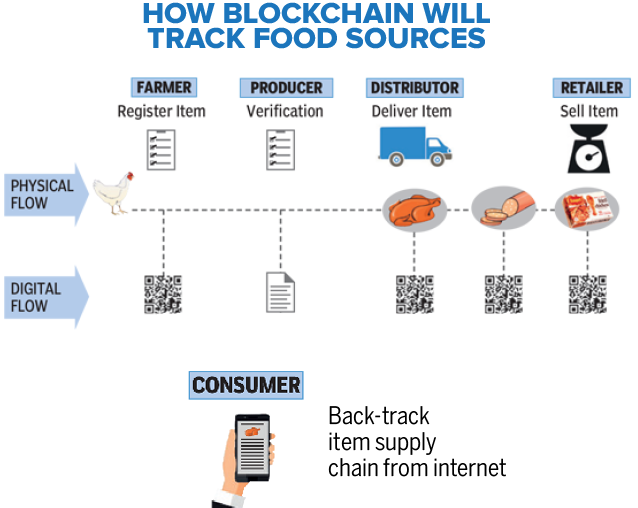The Agriculture Blockchain is here, today.

In my travels throughout the agriculture industry, I routinely talk to people who say things like “this tracking and tracing, and blockchain stuff is interesting, but it doesn’t affect me and won’t impact my business for many years in the future.” I can understand why they say that. So far, the agriculture supply chain has been fairly unaffected by the technological revolution that is hitting other industries. While on-farm technologies have started to take off – heck, we have fully robotic combines now that drive themselves – post-farm supply chain hasn’t seen the type of disruptive technology that others have.
Or so many people think. The reality, however is that these technologies are here, and they being deployed now, and those who do not implement them will be the buggy-whip manufacturers of the future.
As an example. On Sept 24, 2018, Walmart announced that it will require all suppliers of fresh, leafy greens to trace their products back to the farm using blockchain technology.
“All fresh leafy greens suppliers are expected to be able to trace their products back to farm(s) (by production lot) in seconds – not days,” the company said in a letter to suppliers. “To do this, suppliers will be required to capture digital, end-to-end traceability event information.”
Direct suppliers are expected to have these systems in place by Jan. 31 and all “end-to-end” suppliers are expected to comply by the end of September 2019.
Meanwhile, national dairy cooperative Dairy Farmers of America (DFA) announced Sept. 25 that it is starting a pilot project intended to increase supply chain transparency and better connect farmer owners with customers.
“Consumers today want to know where their food comes from and blockchain technology, gives consumers real-time data, which can really help increase trust and confidence about food production from start to finish,” said David Darr, vice president sustainability and member services at DFA, in a press release.
Janette Barnard, sales and marketing director at DecisionNext, shares her expertise on digital value chains in agriculture, including blockchain technology.
“As the flow of information through the value chain becomes increasingly valuable, capturing, transferring, and using data will be a critical evolution in the grain industry,” notes one of her presentation previews. “In this session we’ll explore the dynamics around this shift and the skills, processes, systems and tools from predictive analytics to blockchain that will enable first movers to gain an edge in this new digital world.”
The fact of the matter is that field-to-plate digital tracking, and blockchain technologies are already having an impact in certain segments of the seed, feed, food and grain supply chains – and this change is accelerating at an incredible pace. Those organizations that do not prepare today for what is already happening, but will most surely be ubiquitous only a few years from now, will get locked out of markets for their products as customers, like Walmart, refuse to accept product that is not part of the chain.
The good news is Agriflo is ready today for these and other requirements. Contact us to find out more.
